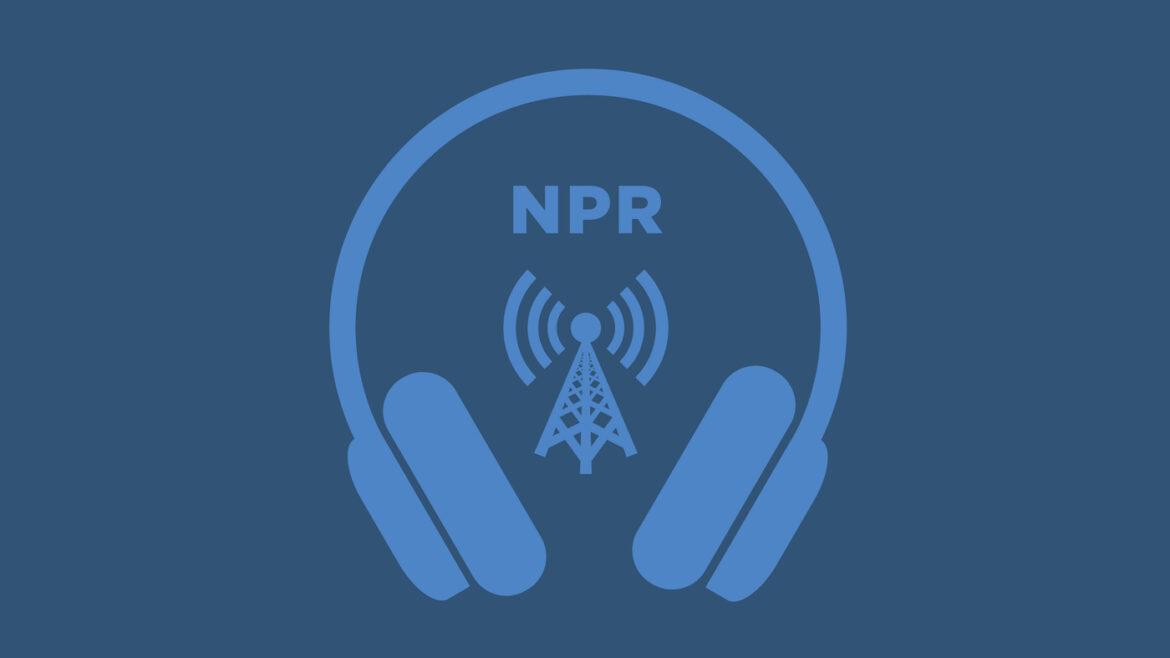Hornet hunters across the U.S. use the summer months to harvest the insects and sell them to a pharmaceutical company. It uses the venom to make a treatment for allergic reactions to their stings.
STEVE INSKEEP, HOST:
The irritating wasp nest that I sprayed at my home the other day apparently could have been worth some money. Some people seek out hornets and wasps in order to collect their venom. It’s used to make a treatment that helps people tamp down their allergic reactions. KLCC’s Brian Bull shadowed a hornet hunter, hopefully, from a safe distance.
(SOUNDBITE OF CAR DOOR SHUTTING)
BRIAN BULL, BYLINE: In the rural Oregon community of Marcola, Jeanne Howell arrives at a house with two large yellow jacket nests. It’s midnight, a time when the insects are less active. Howell suits up in a reinforced beekeeper suit.
(SOUNDBITE OF ZIPPER ZIPPING)
BULL: She climbs a ladder and, with a few firm but cautious tugs, pulls the nest down from the eaves of the house and into a plastic bag. She ties them securely and puts them into her car with other nests she’s gathered today. You can hear them buzzing.
(SOUNDBITE OF WASPS BUZZING)
BULL: Howell’s been doing this since she was 8 years old and learned it all from her dad. When she gets home, she’ll freeze the yellow jackets then remove the females from the pile as they’re the ones with the venom.
JEANNE HOWELL: Their bodies are beautiful. What they do is amazing. How they protect themselves is amazing. I mean, the poison, the venom – you have to respect that.
BULL: Depending on the insect, Howell says she can make between $900 to $1,500 a pound. This is a seasonal job for her that runs from roughly March to October. She has several other gigs that pay the bills. The most she’s made in a year from hornet hunting is about $20,000. She sells her insects to HollisterStier Allergy, the only pharmaceutical company in North America that extracts and processes insect venom into medicine. Bob Erskine is its associate director of medical affairs.
BOB ERSKINE: It can take upwards of a hundred and thirty thousand insects to produce one batch of drug substance, and that can take over 500 staff hours to dissect one at a time.
BULL: In a given year, HollisterStier says they work with 20 to 60 vendors like Howell. They range from hobbyists to entomologists, but all gather and sell venomous insects on a contract basis. A series of shots containing that venom are then given under supervision of a doctor to patients who are allergic, and hopefully, over time, their allergic response can be almost completely eliminated. It’s called venom immunotherapy.
DAVID GOLDEN: It’s been on the market since April of 1979, when it was approved by the FDA. So this is purified venom.
BULL: David Golden is an allergy expert with Johns Hopkins School of Medicine in Baltimore. He says the market for venom immunotherapy is pretty small in the U.S., though it’s bigger in other parts of the world. And he adds that many non-allergist doctors aren’t even aware this treatment exists.
GOLDEN: You get more doctors to actually know that something can be done then there’d be a much bigger market for venom.
BULL: Back in Oregon, Jeanne Howell walks into a bar with a sealed box of yellow jackets. That’s not a setup for a joke. She does this every so often to unwind after work with a drink and give the locals something to marvel at. Connor Lemke (ph) puts down his mug and leans in.
CONNOR LEMKE: Do you get stung at all?
HOWELL: Never.
LEMKE: Never?
HOWELL: Of course I do. Thirteen times. I got my 13th sting last night, right here.
BULL: Stings aside, Howell says she loves the adrenaline rush of the job and meeting people. That enthusiasm is being passed on to a third generation. Her teenage daughter Ruby (ph) has also started capturing nests on her own.
For NPR News, I’m Brian Bull in Veneta, Oregon.
(SOUNDBITE OF MUSIC)
Copyright © 2025 NPR. All rights reserved. Visit our website terms of use and permissions pages at www.npr.org for further information.
Accuracy and availability of NPR transcripts may vary. Transcript text may be revised to correct errors or match updates to audio. Audio on npr.org may be edited after its original broadcast or publication. The authoritative record of NPR’s programming is the audio record.

